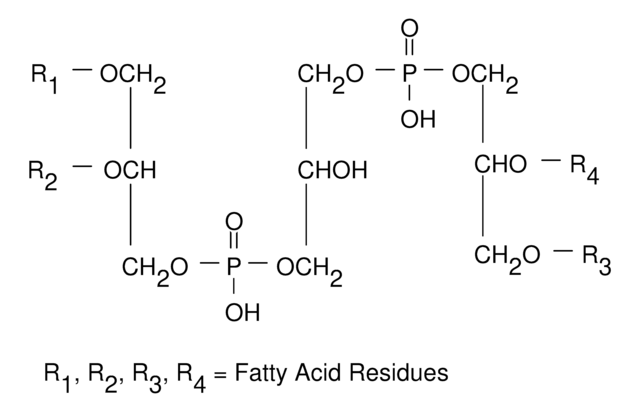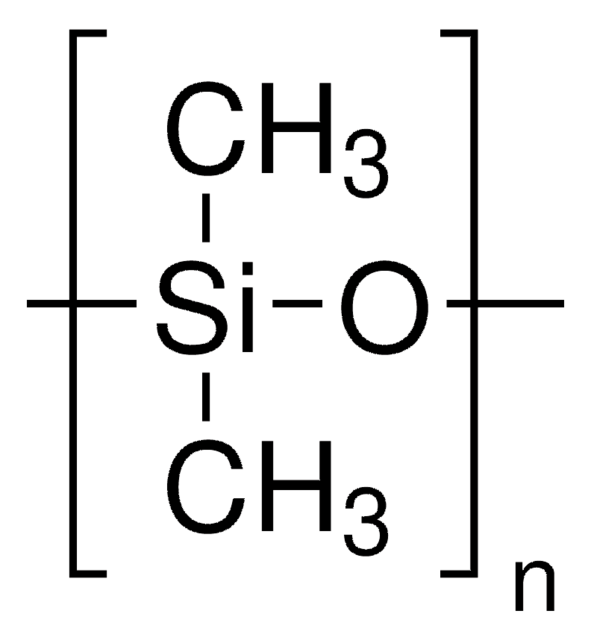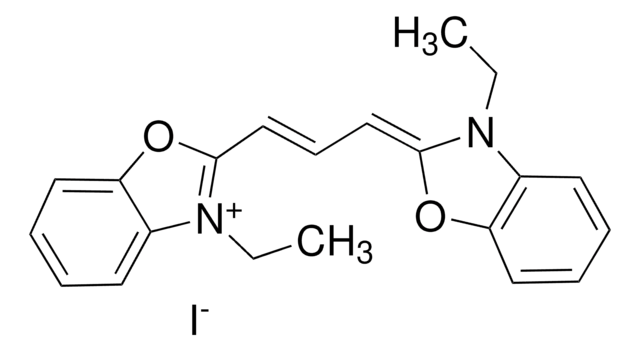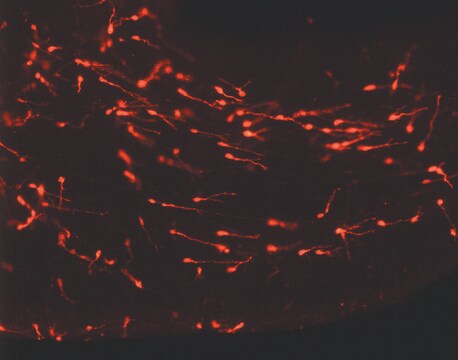42364
1,1′-Dioctadecyl-3,3,3′,3′-tetramethylindocarbocyanine perchlorate
BioReagent, suitable for fluorescence, ≥98.0% (TLC)
Sinónimos:
DiI
About This Item
Productos recomendados
Línea del producto
BioReagent
Ensayo
≥98.0% (TLC)
mp
68 °C (dec.) (lit.)
solubilidad
DMF: soluble
DMSO: soluble
methanol: soluble
fluorescencia
λex 550 nm; λem 567 nm in phosphate buffer/SDS pH 7.0
idoneidad
suitable for fluorescence
cadena SMILES
[O-]Cl(=O)(=O)=O.CCCCCCCCCCCCCCCCCCN1c2ccccc2C(C)(C)/C1=C\C=C\C3=[N+](CCCCCCCCCCCCCCCCCC)c4ccccc4C3(C)C
InChI
1S/C59H97N2.ClHO4/c1-7-9-11-13-15-17-19-21-23-25-27-29-31-33-35-41-50-60-54-46-39-37-44-52(54)58(3,4)56(60)48-43-49-57-59(5,6)53-45-38-40-47-55(53)61(57)51-42-36-34-32-30-28-26-24-22-20-18-16-14-12-10-8-2;2-1(3,4)5/h37-40,43-49H,7-36,41-42,50-51H2,1-6H3;(H,2,3,4,5)/q+1;/p-1
Clave InChI
JVXZRNYCRFIEGV-UHFFFAOYSA-M
¿Está buscando productos similares? Visita Guía de comparación de productos
Descripción general
Aplicación
- Preparation of Dil solution
- fluorescent membrane dye
- Di-I Staining
Acciones bioquímicas o fisiológicas
Otras notas
Código de clase de almacenamiento
11 - Combustible Solids
Clase de riesgo para el agua (WGK)
WGK 3
Punto de inflamabilidad (°F)
Not applicable
Punto de inflamabilidad (°C)
Not applicable
Equipo de protección personal
Eyeshields, Gloves, type N95 (US)
Elija entre una de las versiones más recientes:
¿Ya tiene este producto?
Encuentre la documentación para los productos que ha comprado recientemente en la Biblioteca de documentos.
Los clientes también vieron
Artículos
Nitric oxide (NO) as a signal transporter in neurons, endothelial cells and in the immune system.
Nuestro equipo de científicos tiene experiencia en todas las áreas de investigación: Ciencias de la vida, Ciencia de los materiales, Síntesis química, Cromatografía, Analítica y muchas otras.
Póngase en contacto con el Servicio técnico



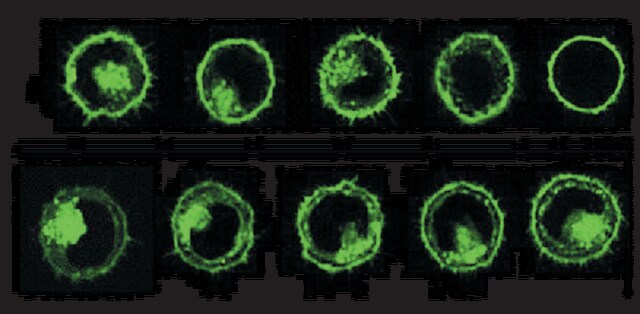
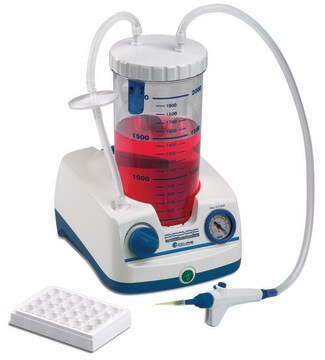


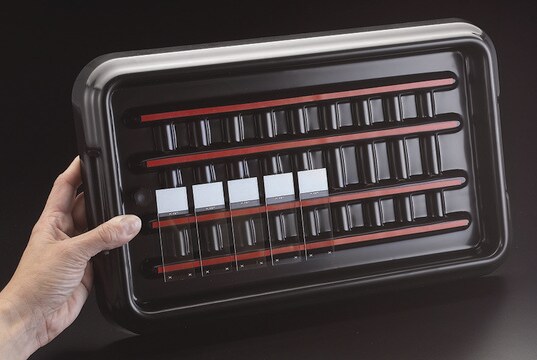
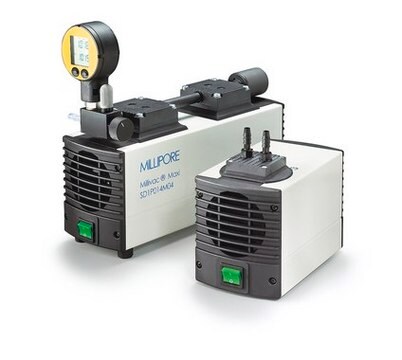
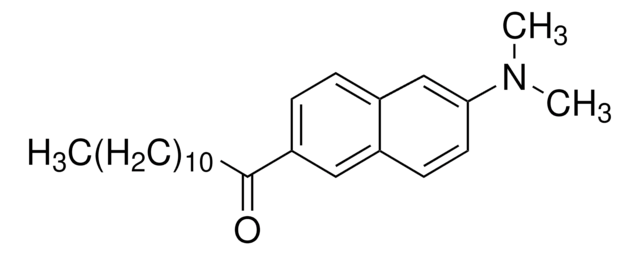
![14:0 Cardiolipin (sodium salt) 1′,3′-bis[1,2-dimyristoyl-sn-glycero-3-phospho]-glycerol (sodium salt), powder](/deepweb/assets/sigmaaldrich/product/images/390/523/992bed4e-3608-4209-aa6e-fa9206a4a31b/640/992bed4e-3608-4209-aa6e-fa9206a4a31b.jpg)
